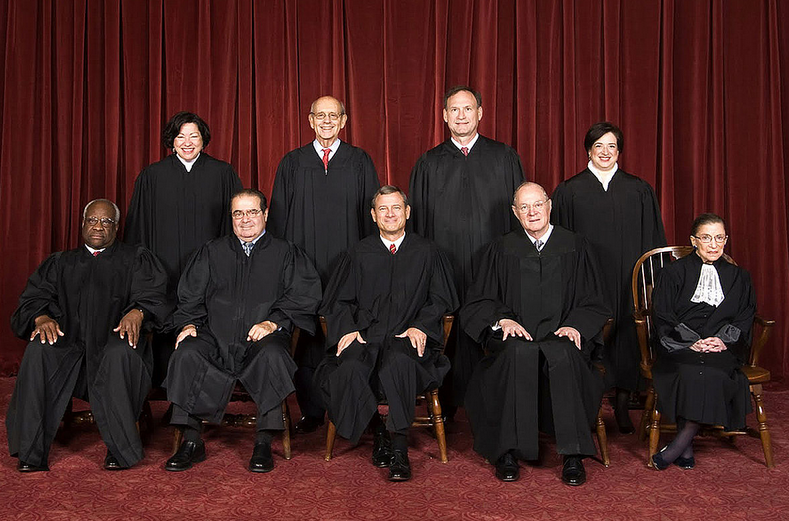In advance of the Neil Gorsuch confirmation hearings being held in the Senate this week, C-Span decided it was time to pull out its recurring poll on American perception of the Supreme Court.
Per usual, the questions asked opinions on the effectiveness of the Supreme Court, of its impact on everyday life, and how much individuals hear about it through television and other mediums.
Perhaps most revealing of the state of our country, however, was the question which asked respondents to name a current Supreme Court Justice. Only 43 percent could do so. The other 57 percent were unable to name any, or else gave an incorrect name. I would wager that some of those incorrect responses were “Judge Judy,” particularly since a previous study found that 10 percent of college graduates thought she was a member of the revered SCOTUS team.

Sadly, this year’s poll showed a steady decrease from the same survey conducted in July 2015. At that time, 47 percent of Americans could name at least one justice.
To be sure, not knowing the names of Supreme Court justices is a small thing. But is it indicative of a greater decline in civic and historical knowledge? Statistics seem to endorse such a thought, for in 2010, only 24 percent of high school seniors were proficient in civics. That same year, only 12 percent were proficient in U.S. history.
Such numbers are a clear signal that American schools have forgotten the charge given them by Noah Webster in the founding years of our country:
“Our constitutions of civil government are not yet firmly established; our national character is not yet formed; and it is an object of vast magnitude that systems of education should be adopted and pursued which may not only diffuse a knowledge of the sciences but may implant in the minds of the American youth the principles of virtue and of liberty and inspire them with just and liberal ideas of government and with an inviolable attachment to their own country.”
According to University of Chicago professor Richard Weaver, American schools abandoned this goal when they adopted the principles of John Dewey, attempting to make schools the tools “for the implementing of social democracy or democratic socialism”:
“Neither were the schools to introduce students to the traditions of our American life, for those traditions were seen merely as an encumbrance of left-over baggage from the dark age before his brand of enlightenment.”
It’s becoming increasingly clear that knowledge of our country, the foundations upon which it was built, and the legal processes that make it great are waning. Is it time to recognize that teaching the traditions of American life in public schools is not a burden, but rather a necessity if we are to continue enjoying the freedoms we’ve long held?
Image Credit: Roberts Court – Oyez Project, Public Domain
















Leave a Comment
Your email address will not be published. Required fields are marked with *